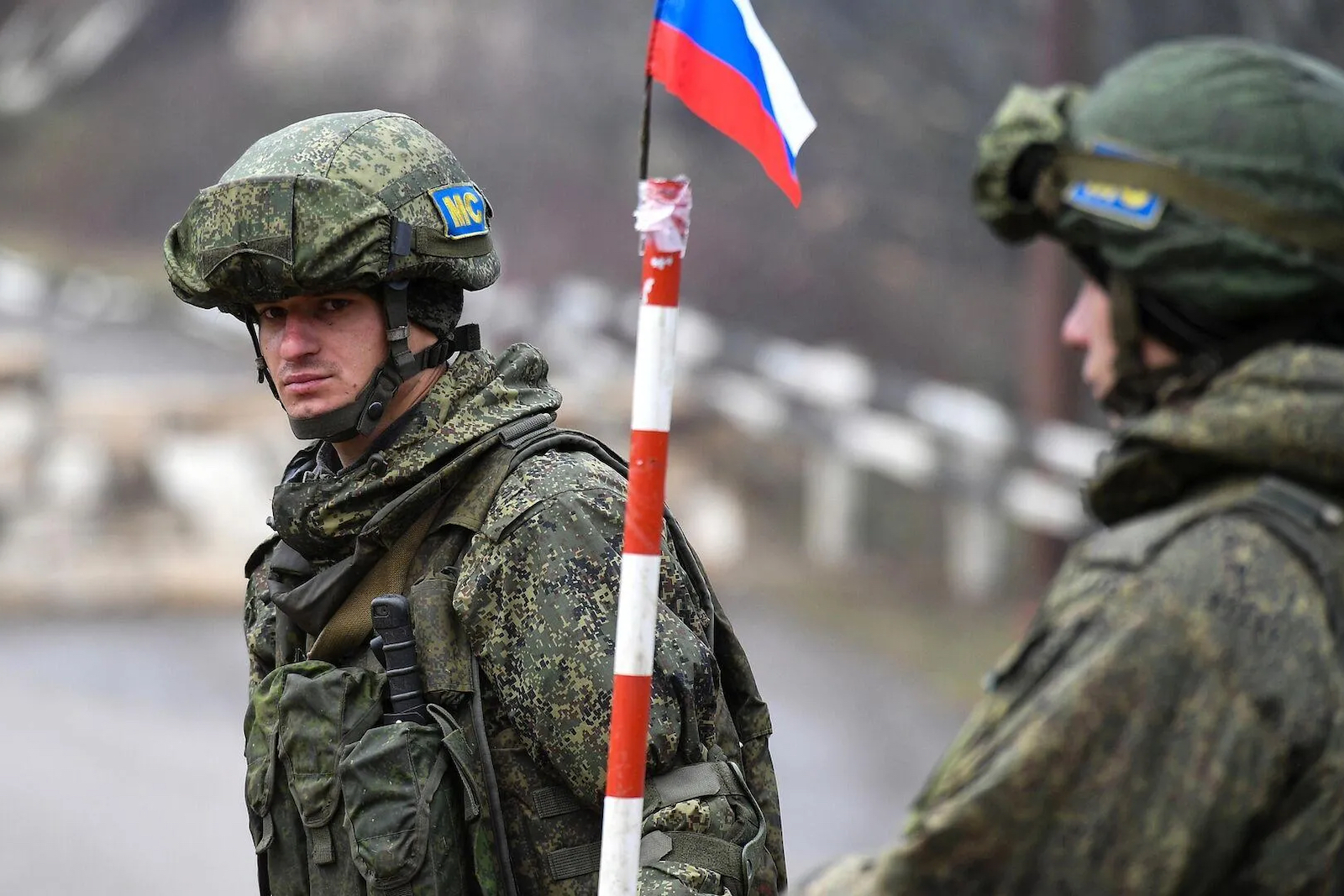
Russia’s Withdrawal from Karabakh Could Lead to a Lasting Peace
Russia has withdrawn nearly 2,000 peacekeepers from Azerbaijan’s Karabakh region, a surprising move that could bolster the ongoing rapprochement between Azerbaijan and Armenia.
Under the terms of a 2020 ceasefire between the two countries, 1,960 Russian soldiers were stationed in the region, along with hundreds of units of armored personnel carriers and other military equipment. Their peacekeeping mandate was set to expire in November 2025. However, with Moscow under immense pressure following its invasion of Ukraine, Russia is reallocating its military resources to that front.
Karabakh, a mountainous area internationally recognized as part of Azerbaijan, had been occupied by Armenia for almost three decades following the First Nagorno-Karabakh War, which erupted during the waning days of the Soviet Union. Azerbaijan regained control of the territory during the Second Nagorno-Karabakh War in 2020 and a swift offensive in September 2023, in which the Russian contingent did not intervene.
Six months later, Russia has withdrawn its troops from Karabakh, according to Kremlin spokesman Dmitry Peskov. Hikmet Hajiyev, foreign policy adviser to Azerbaijani President Ilham Aliyev, confirmed that a withdrawal agreement had been reached. “The early withdrawal of Russian peacekeepers, temporarily stationed in the territory of the Republic of Azerbaijan in accordance with the trilateral statement signed on November 10, 2020, has been decided by the leaders of both countries,” Hajiyev told the state news agency AZERTAC.
The pullout comes amid a growing rift between Russia and its ally Armenia. Armenia recently distanced itself from Moscow by suspending its membership in Russia’s CSTO military bloc and conducting joint military drills with the United States. Yerevan is also pursuing closer integration with the European Union.
This realignment offers an opportunity for Azerbaijan and Armenia to resolve their differences directly, without external interference. A recent agreement between Baku and Yerevan to transfer control of four border villages to Azerbaijan and erect the first border markers between the two countries occurred without Russian involvement. The “No Russia, no West” approach in Azerbaijan-Armenia relations, adopted last year, seems promising.
A consensus to agree on a common border based on the Alma-Ata Protocols of 1991, which regulated the breakup of the Soviet Union, is particularly encouraging.
The Zangezur corridor, a proposed transport route through Armenia connecting Azerbaijan with its exclave of Nakhchivan, remains a contentious issue. Nevertheless, Azerbaijan supports the joint construction of a road and railway through the 34-kilometer strip of Armenian land separating Nakhchivan from Azerbaijan, as stipulated in the 2020 ceasefire agreement.
“Armenia could overcome its isolation. It could collect transit fees and improve its relationship with Turkey,” Elchin Amirbayov, special envoy to President Ilham Aliyev, told German newspaper Die Zeit. If Armenia rejects this offer, he noted, “Well, we could also build the road and railway further south through Iran, which would only be ten kilometers longer.”
A significant sign of cooperation emerged last December when Armenia supported Azerbaijan’s bid to host this year’s COP29 in Baku. This first international gesture of support between the two neighbors indicates that regional cooperation is possible if external powers refrain from imposing their geopolitical agendas.
Countries like France and Russia must adopt a hands-off policy in the South Caucasus, allowing Azerbaijan, Armenia, and Georgia to collaborate and resolve their differences. This approach could finally bring peace to a region that lies at the crossroads of East and West.
